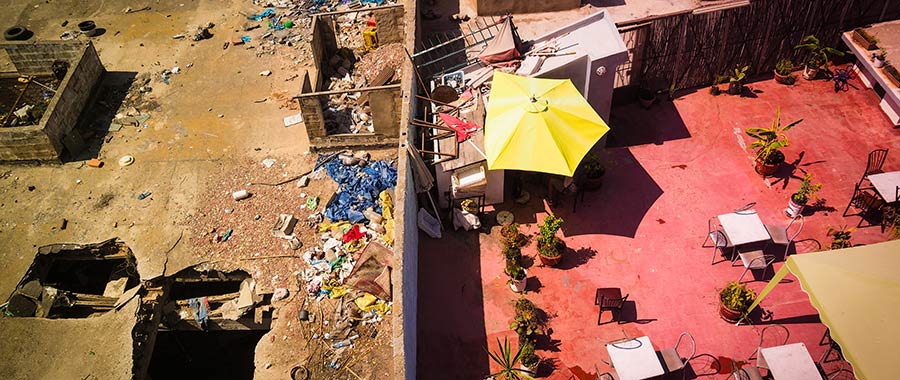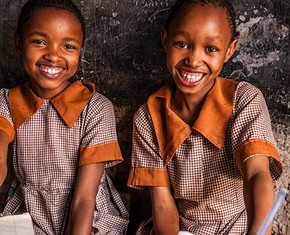The views expressed in our content reflect individual perspectives and do not represent the authoritative views of the Baha'i Faith.
Is poverty an inevitable fact of life? Are millions of people doomed to live in poverty no matter how hard we try to do away with it?
The great religions have always preached helping the poor rather than doing away with poverty. By practicing charity, aren’t we in effect perpetuating poverty? By teaching that God loves the poor, and by implying that the poor are more righteous than the rich, aren’t we encouraging poverty to remain in place as an inevitable aspect of human existence?
Some religions and faith philosophies of the East and the West encourage monks and nuns to live in poverty to enhance their spiritual life, thereby making poverty a virtue and a goal to aspire for. This, of course, is a personal choice, and certainly seeking fulfillment in the life of the spirit rather than in material things is laudable. But most of the world’s poor are not poor by choice. The mother who does not have milk for her little child, or the father who cannot buy his child a present for the holidays, their poverty is demeaning and debilitating. It is the kind of poverty civilized society must not allow.
The Baha’i teachings call for an end to poverty:
Men must bestir themselves in this matter, and no longer delay in altering conditions which bring the misery of grinding poverty to a very large number of the people. The rich must give of their abundance, they must soften their hearts and cultivate a compassionate intelligence, taking thought for those sad ones who are suffering from lack of the very necessities of life.
There must be special laws made, dealing with these extremes of riches and of want. The members of the Government should consider the laws of God when they are framing plans for the ruling of the people. The general rights of mankind must be guarded and preserved.
The government of the countries should conform to the Divine Law which gives equal justice to all. This is the only way in which the deplorable superfluity of great wealth and miserable, demoralizing, degrading poverty can be abolished. Not until this is done will the Law of God be obeyed. – Abdu’l-Baha, Paris Talks, p. 153.
The world today is divided into affluent countries and impoverished ones. Often a country becomes impoverished because of over-population, which many consider to be the greatest problem of today’s world. But even in some of the most affluent countries in the world there are large pockets of poverty, because society is not doing enough to help those who are in need of help.
There are two things countries can do to ameliorate internal and external poverty. Internal poverty calls for more social planning on all levels of government and Non-Governmental Organizations (NGOs). It should be a top priority of all civilized societies. One way of dealing with external poverty is for each affluent country to “adopt” a non-affluent one, and help the “adopted” country with health, education, job training, and so on. This kind of global effort can be monitored and directed by the United Nations or a similar international organization for worldwide cooperation. The progress of such a program should be studied, and wherever efforts are successful, they should be shared with other countries to keep improving the work.
It should be clear to all that elevating the socio-economic status of people worldwide is in everyone’s interest. Poverty is one of the major causes of conflict and war around the world. A more equal world, a world where people are busy improving themselves and their socio-economic status, is a world that has less reason to engage in destructive activities and is less likely to follow those leaders who preach violence and war as a path to improve their followers’ lives.
Religion, as the Buddha and Baha’u’llah taught, progresses and evolves. Perhaps centuries ago when the great religions first started, poverty seemed to be immutable. But the world keeps progressing despite all the setbacks, and humankind today can do much more than ever before. It is only a matter of will:
The arrangements of the circumstances of the people must be such that poverty shall disappear, that everyone, as far as possible, according to his rank and position, shall share in comfort and well-being. – Ibid., p. 151.
You May Also Like
Comments

















The association of poverty with progress is the great enigma of our times. It is the source of our industrial, social and political difficulties. Our statesmen, philanthropists, and educators grapple with it in vain. This riddle, if not answered, will eventually topple our entire civilization. To solve the riddle, we must research the immutable laws governing the science of economics." http://www.wealthandwant.com/HG/PP/Katzenberger_synopsis.html